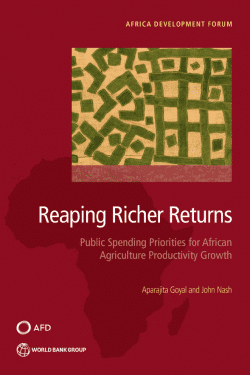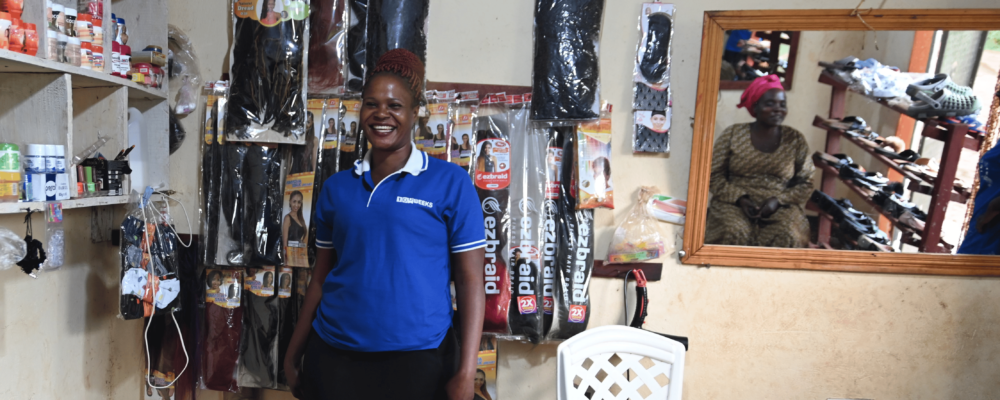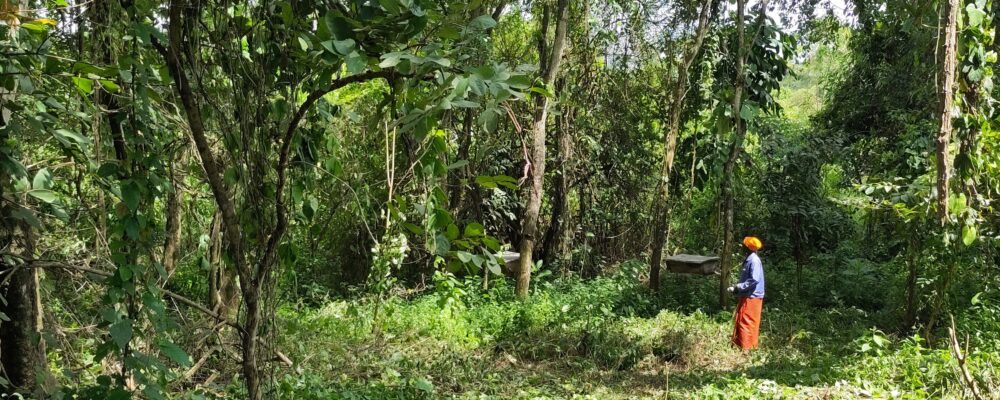
Policy highlights:
- Public spending on agriculture remains low in sub-Saharan Africa, especially in terms of research and development. Most funds are spent on short-term policies instead of long-term transformation, and on those already well-off instead of the rural poor. Therefore, production increases stem mainly from agricultural expansion instead of from productivity growth, which cannot be maintained indefinitely. Increased agricultural productivity decreases rural poverty by raising farmer incomes, reducing the costs of produce for the non- farming population and promoting the development of agro-industry. Currently, imports fill the demand for produce caused by population growth. Agricultural transformation would offer the opportunity to capture regional markets.
- Examples of what should be public spending goals are 1) generating knowledge (and advance technology), 2) disseminating knowledge and building human capital, 3) reducing transaction costs, and 4) attracting private capital. In addition, public spending will be more efficient when it has a solid foundation of strategies and investment plans.
- The political economy should be managed to avoid bias and personal incentives leading to inefficient budget spending by 1) increasing transparency about the distributional effects of policies, 2) improving targeting and gradually phasing out subsidies, 3) using mechanisms to enhance credibility of government commitment to investments with long time horizons, and 4) packaging and sequencing reforms in ways that reduce opposition.
- An example of inefficient use of public spending is the way input (fertilizer) programmes are implemented, focused on increasing amounts but not efficiency. For developing such programmes, it is necessary to do a country-by-country assessment of the feasibility of achieving goals in the foreseeable future. Proposed solutions include 1) targeting specific (profitable) households, 2) involving the private sector and 3) avoiding diversion of subsidy programmes by authorities.








